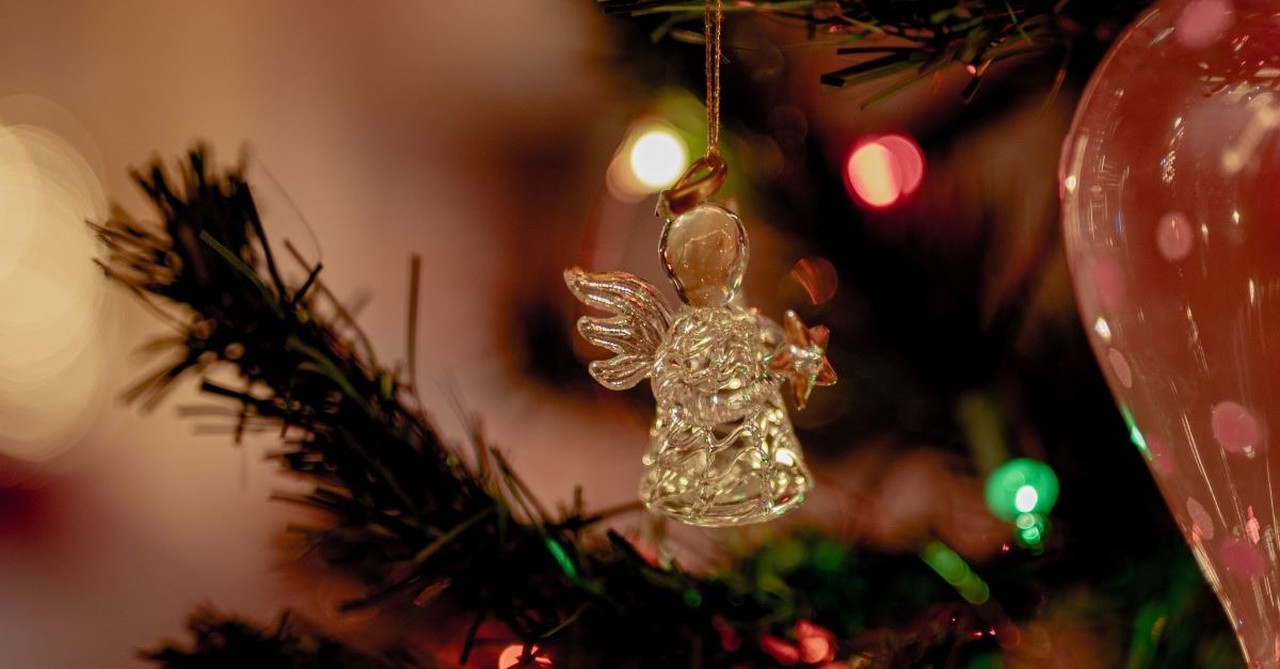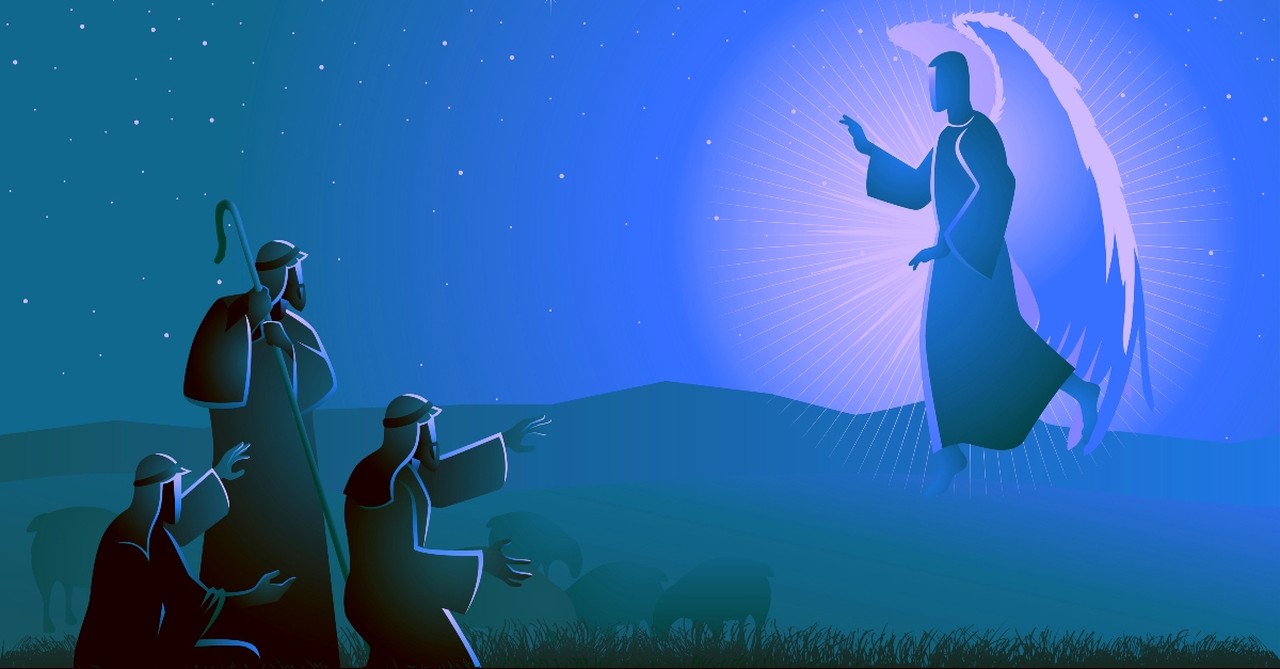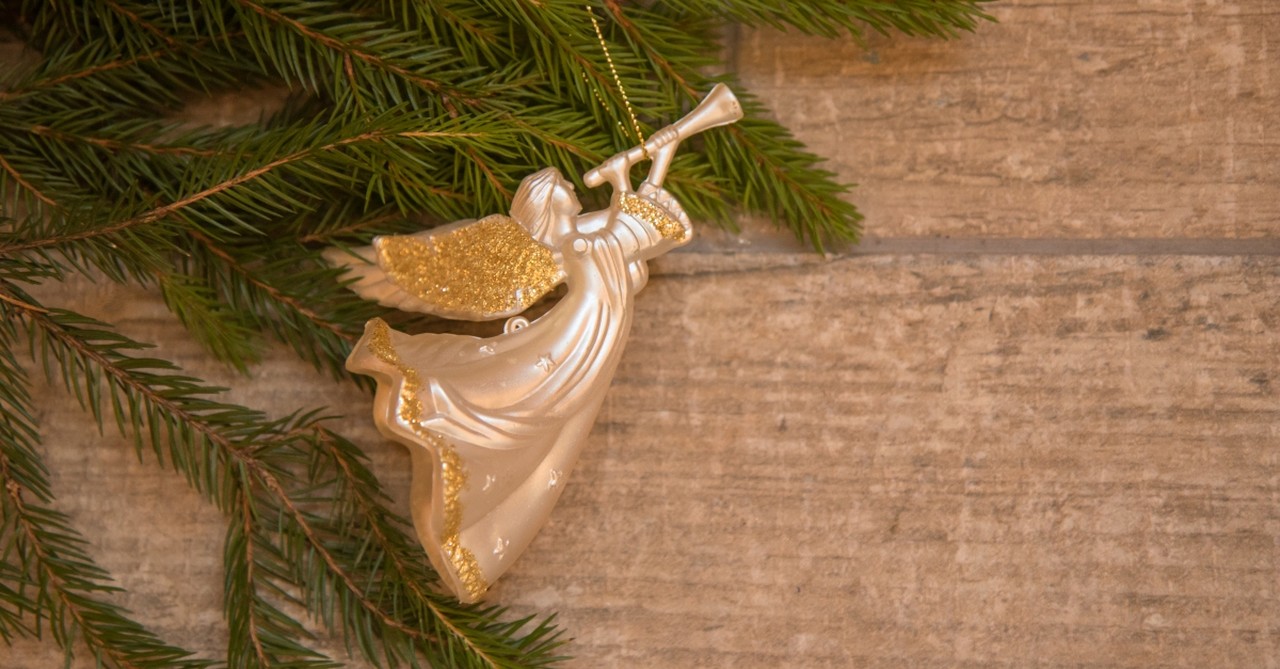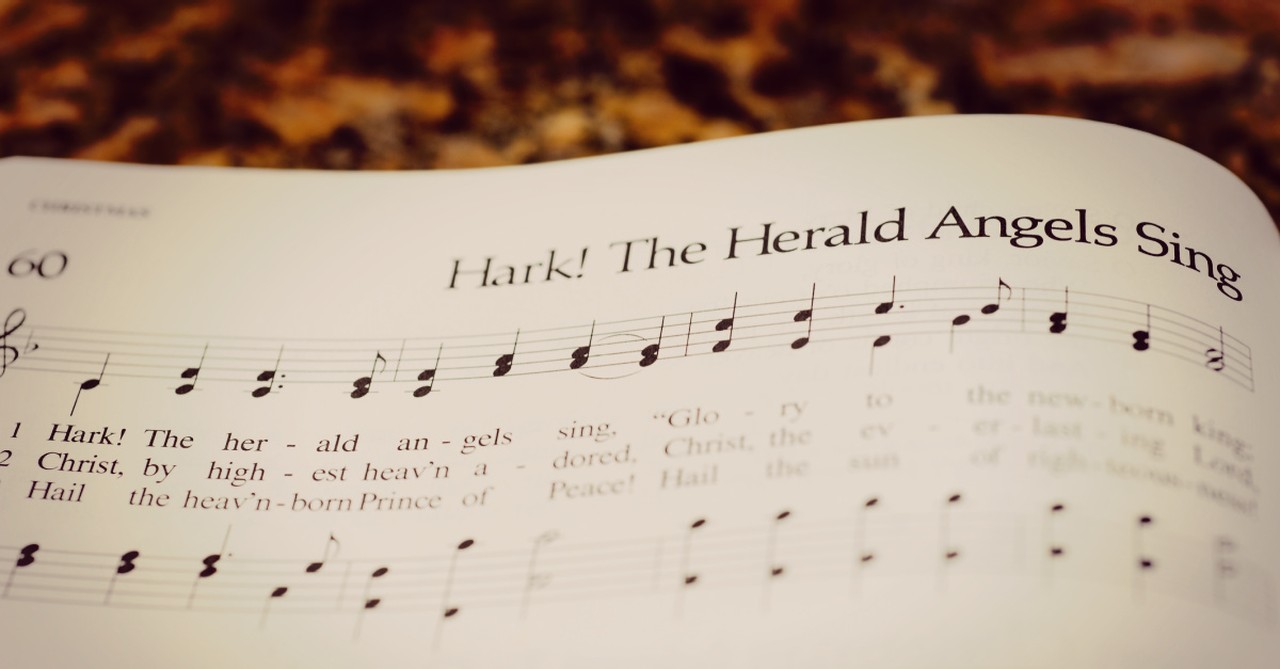
Angels are an important part of the Christmas story. On the first Christmas, angels visited Bethlehem to make the greatest announcement in history: the arrival of the world’s Savior. God also assigned angels to deliver other vital Christmas messages. The roles that angels played when Jesus was born align with their calling as God’s messengers. The word “angel” comes from the Greek word “angelos,” which means “messenger.” Today, we honor the messenger work of Christmas angels by decorating with angels at Christmas and singing about them in beloved Christmas carols.
Here are five reasons why we honor the importance of angels at Christmastime:
Photo Credit: Unsplash/laura adai
1. Angels announced Jesus’ birth.

1. Angels announced Jesus’ birth.
SLIDE 1 OF 5
Angels played a pivotal role in the Christmas story by delivering the glorious news of Jesus’ birth. Luke 2:8-14 records angels appearing to shepherds in Bethlehem, announcing the birth of the Messiah (the world’s Savior): “And there were shepherds living out in the fields nearby, keeping watch over their flocks at night. An angel of the Lord appeared to them, and the glory of the Lord shone around them, and they were terrified. But the angel said to them, ‘Do not be afraid. I bring you good news that will cause great joy for all the people. Today, in the town of David, a Savior has been born to you; he is the Messiah, the Lord. This will be a sign to you: You will find a baby wrapped in cloths and lying in a manger.’ Suddenly, a great company of the heavenly host appeared with the angel, praising God and saying, ‘Glory to God in the highest heaven, and on earth peace to those on whom his favor rests.’” Shepherds encountered a wondrous sight as a multitude of angels showed up, heralding the arrival of the long-awaited Messiah. It is significant that the first human beings to hear this world-changing announcement were shepherds. They were the ones who raised the lambs that were sacrificed to atone for people’s sins, and now that Jesus had arrived as the Lamb of God – the Messiah whose sacrifice would save the whole world – the shepherds received the honor of finding out first. Another significant detail is the glory of the Lord shone around the scene that night. Angels, who are beings of light, reflected God’s glorious light as they announced the arrival of the Light of the World, Jesus.
Photo Credit: ©iStock/Getty Images Plus/rudall30
2. The angel Gabriel told Mary about God’s plan.

2. The angel Gabriel told Mary about God’s plan.
SLIDE 2 OF 5
Before the miraculous birth of Jesus, the angel Gabriel played a crucial role in delivering a profound message to Mary. In Luke 1:26-38, Gabriel informs Mary about God’s plan for her to conceive through the Holy Spirit’s power and give birth to the Son of God. Gabriel carries on a detailed conversation with Mary, telling her that God is with her (verse 28) and continuing in verses 30-33: “Do not be afraid, Mary; you have found favor with God. You will conceive and give birth to a son, and you are to call him Jesus. He will be great and will be called the Son of the Most High. The Lord God will give him the throne of his father David, and he will reign over Jacob’s descendants forever; his kingdom will never end.” After Mary asks Gabriel how that can be, Gabriel explains God’s plan, and then leaves after Mary accepts it by saying in verse 38: “I am the Lord’s servant. May your word to me be fulfilled.” This important encounter between Gabriel and Mary has come to be known in history as the Annunciation (which means “the announcement”) highlights God’s orchestration of events leading to the birth of Jesus and shows the significance of angels serving as messengers. After her conversation with Gabriel, Mary celebrates the wonder of God’s work in her life through a song in Luke 1:46-55. As we reflect on the Annunciation, we can find the inspiration we need to discover the wonder of God’s work in our own lives and live with purpose day by day.
Photo Credit: ©GettyImages/Rudall30
3. An angel told Joseph about God’s plan.

3. An angel told Joseph about God’s plan.
SLIDE 3 OF 5
Joseph, the earthly father of Jesus, also received divine guidance through an angelic encounter. In Matthew 1:18-25, we read the story of how Joseph was considering leaving Mary after learning of her pregnancy, but an angel appears to Joseph in a dream, reassuring him and revealing God’s plan for Mary’s conception. The angel tells Joseph in verses 20-21: “Joseph son of David, do not be afraid to take Mary home as your wife, because what is conceived in her is from the Holy Spirit. She will give birth to a son, and you are to give him the name Jesus, because he will save his people from their sins.” This story shows how God assigns angels to send important messages that communicate his divine guidance, as well as to help protect people who are faithfully pursuing God’s plan. Joseph’s obedience to the angel’s message from God – despite how challenging it is – shows his great faith and wisdom. Here, the angel tells Joseph, “do not be afraid” – just as the angel Gabriel tells Mary, and just as the angel who announces Jesus’ birth to the shepherds tells them. Each time angels show up in the Christmas story, they emphasize overcoming fear in order to join God in his redemptive work in the world.
Photo Credit: ©Thinkstock/cranach
4. Angel decorations highlight the importance of Christmas angels.

4. Angel decorations highlight the importance of Christmas angels.
SLIDE 4 OF 5
The tradition of decorating with angels at Christmas has symbolic significance that relates to the important roles angels played during the first Christmas. Angels are popular choices for the top of Christmas trees, because they serve as messengers between heaven and earth – including when they appeared in Bethlehem to deliver the greatest message in history and worship God. People worldwide often decorate their Christmas trees with angel ornaments, whether at the top of the tree or on its branches. A diverse variety of angel ornaments are available today, with all sorts of designs, and even microchips inside so the angels can sing, glow from within, play instruments, and more. Sometimes, people also place tinsel on Christmas trees. That tradition developed from the practice of parents placing streamers on Christmas trees and telling children the streamers were “angel hair” that had gotten caught in the branches while angels were decorating the trees. People often use angel Christmas lights to emphasize the radiant nature of angels as beings of light. These traditions not only look beautiful but also help us ponder the wonder of all the ways angels served God when Jesus was born, and how they continue to do so every day.
Photo Credit: ©Getty Images/Irina Chernysh
5. Christmas carols celebrate the importance of Christmas angels.

5. Christmas carols celebrate the importance of Christmas angels.
SLIDE 5 OF 5
Throughout the centuries, Christmas carols have celebrated Christmas angels. People often sing Christmas songs that mention the wondrous work of angels on the first Christmas. “Hark! The Herald Angels Sing” describes the angelic chorus in Bethlehem at Jesus’ birth. It opens with these lyrics, which encourage us to listen to the angel’s proclamation and celebrate the arrival of the world’s Savior: “Hark! The herald angels sing/‘Glory to the newborn King/Peace on earth and mercy mild/God and sinners reconciled!’” Another popular Christmas carol that focuses on the angels who announced Jesus’ birth is “Angels We Have Heard on High,” which encourages us to join the angels in singing “Gloria in excelsis Deo!” (Latin for “Glory to God in the highest!”) and opens this way: “Angels we have heard on high/Sweetly singing o'er the plains/And the mountains in reply/Echoing their joyous strains./ Gloria in excelsis Deo!” Yet another beloved Christmas carol that highlights the angels on the first Christmas is “It Came Upon the Midnight Clear.” That song opens with lyrics that invite us to imagine that night in Bethlehem when angels announced Jesus’ birth: “It came upon the midnight clear,/That glorious song of old,/From angels bending near the earth/To touch their harps of gold:/’Peace on the earth, goodwill to men,/From heaven’s all-gracious King.’/The world in solemn stillness lay/To hear the angels sing.” All of our cherished Christmas carols remind us of the inspiration God gives us through his angelic messengers – and especially through the greatest message of all, the gift of Jesus. When we sing these songs, we share the Gospel message by pointing people to Jesus and his mission to save the world from sin. That’s the “good news” the angels in Bethlehem proclaimed in their Christmas message.
In conclusion, angels play important roles in how we celebrate Christmas today because they were an important part of the first Christmas. Angels, who serve as God’s messengers, delivered history’s most important message: the world’s Savior had arrived! They also traveled on assignment from God to make important announcements to Mary and Joseph related to Jesus’ birth. Ever since that first Christmas in Bethlehem, people around the world have celebrated Christmas with angel decorations and Christmas carols that mention angels. Christmas angels remind us of the core message of Christmas, which is that God is with us. That’s definitely something to celebrate!
Photo Credit: ©Getty Images/Earle Liason

Originally published December 18, 2023.







